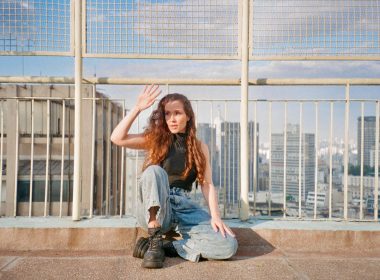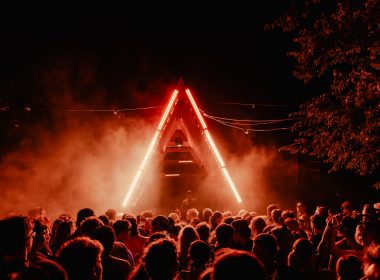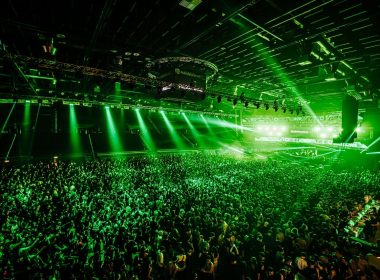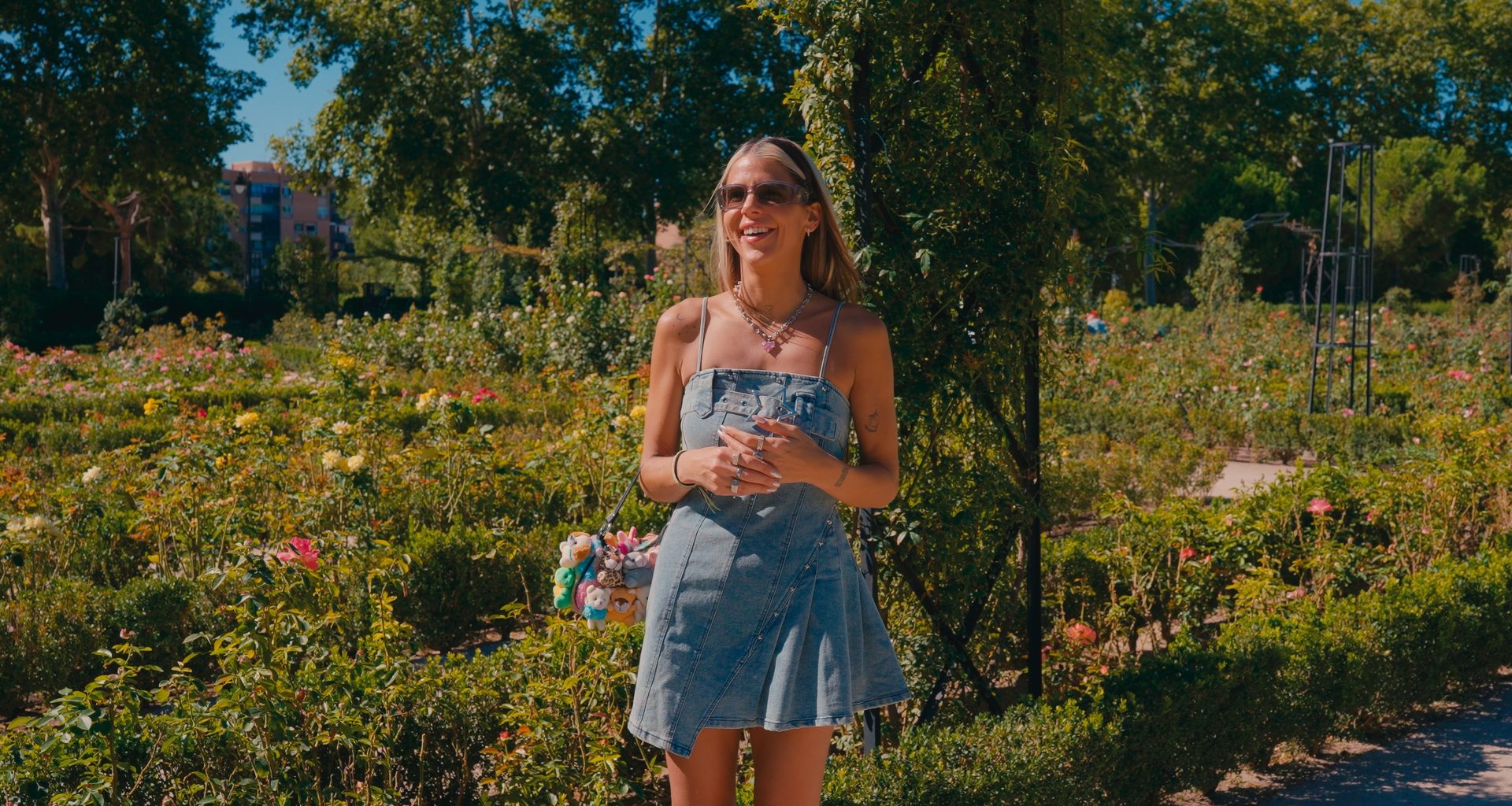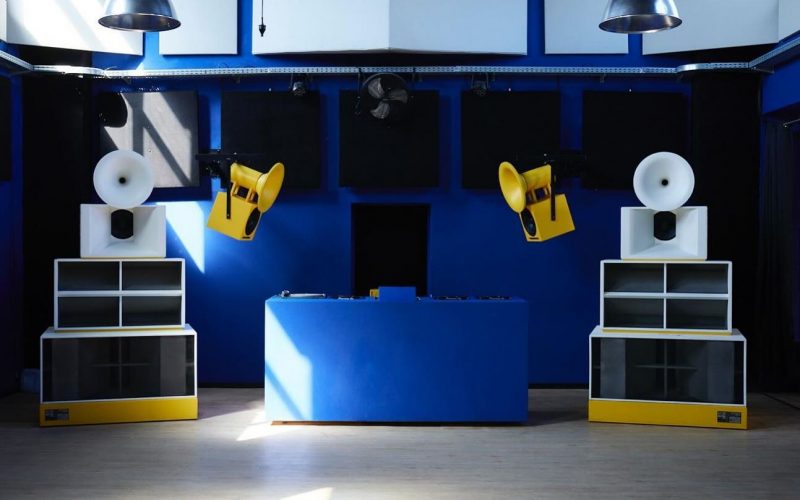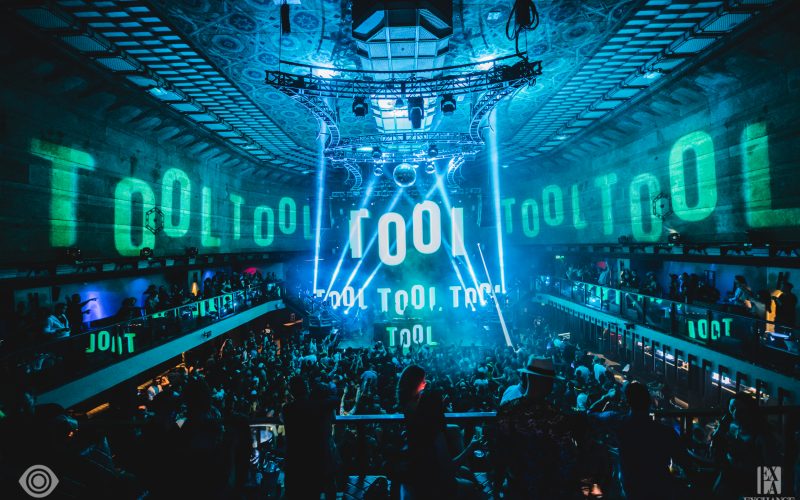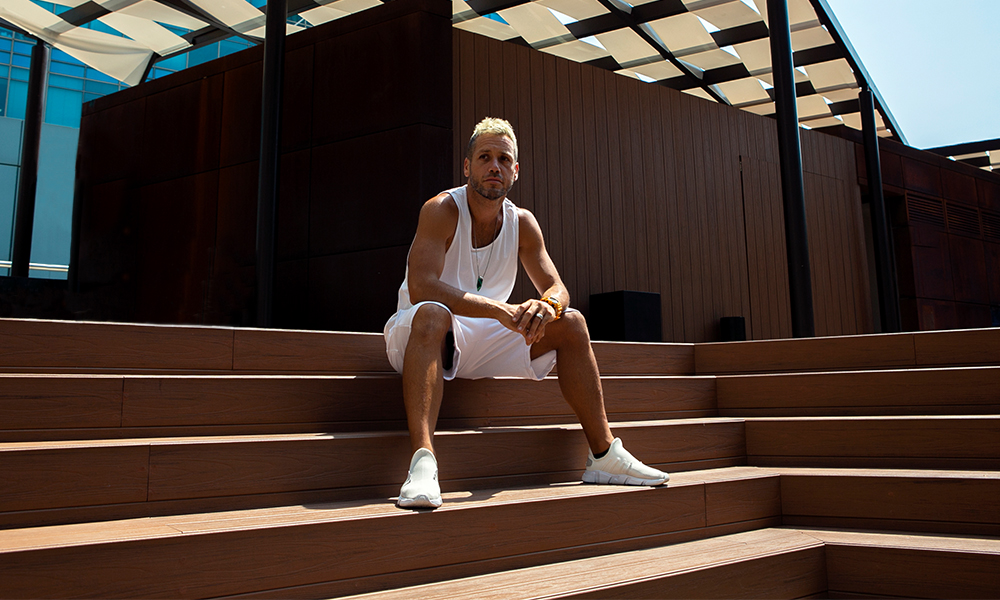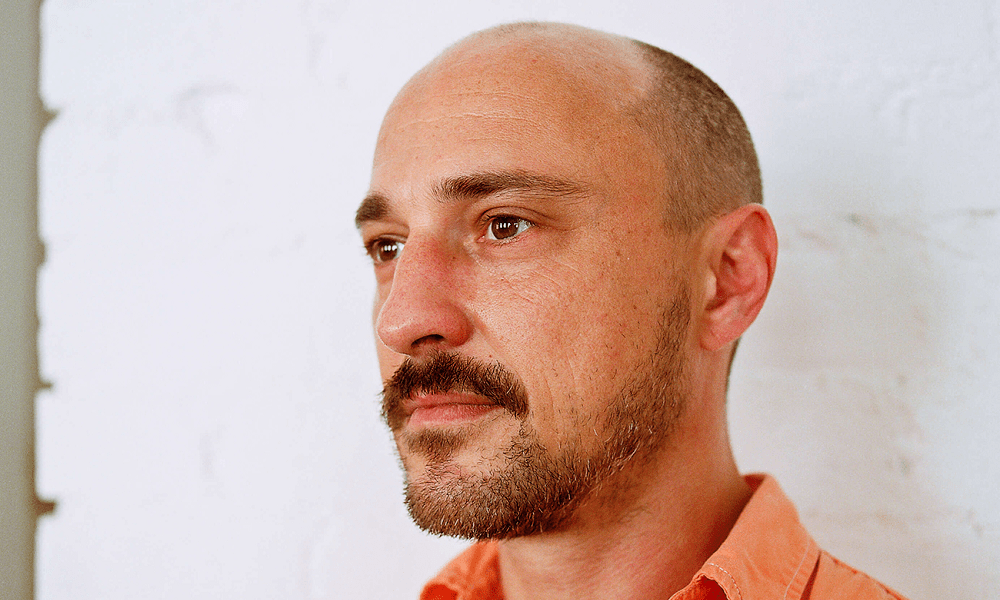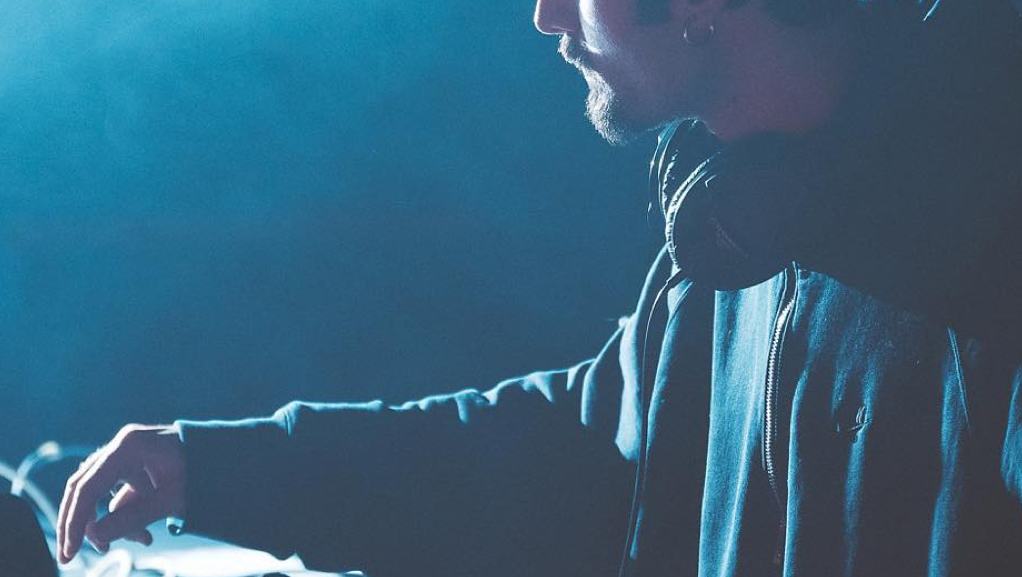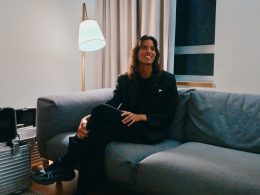Fresh off the release of her bold new EP, ‘In My 2024 Era‘, ØTTA keeps shining as a driving force redefining electronic music. After a transformative summer headlining major events including her very own Hotties in Bogotá and Glitch Festival, she’s ready to take on the winter season with her sassy and unlabeled vision of groove!
Dive in as she shares insights on navigating the industry within your own identity, the direction of Hotties, the importance of warm up sets and why being true to yourself is the key to standing out.
Now that summer is technically coming to an end, how are you feeling? What have been your highlights over the last few months and what are you looking forward to about the winter season?
The summer for me is not over, because she’s a summer girl, and summer is a state of mind. But from this summer, I think the highlights were for sure, Hotties Bogotá. It was my first bigger event with like 6000 people, and it was really fun. The crew and the lineup were really fun, the vibe was really nice.
I think Glitch Festival was also super nice. We had all the agency there, it makes a difference when you have all your people with you. I would say those ones were the highlights of the summer for me.
For the winter season, I’m super excited for October, because we have ADE. We have Intercell with Funk Tribu, Unreal, Mixmag, Time Warp after and we are going to Japan next month!
You just released a spicy and contagious EP titled ‘In My 2024 Era’. What exactly does being in your 2024 era mean? Is there a track that’s especially meaningful to you? Is there a hot album coming after this?
I was playing a different style ages ago, and I took a couple of years to kind of find my real identity. I think you need that time to develop yourself as an artist. And this EP, ‘In My 2024 Era’ is like claiming it and saying, “Okay, guys, I’ve been years trying to change my style. I’m claiming it. This is my vibe”. It’s kind of a statement name.
I have the track I released with my friend, ‘Everybody Getting Low’. It was super fun to do because he’s not even in the music scene, so it was actually like two friends having fun. Then I have the other one, the first one that was released, ‘Voce De 4’ and there is the Brazilian vibe, of course. The final release was on the 20th of September, so eventually we had two more tracks coming for that one.
Like I was saying, the one I did with my friend has a different meaning. Maybe it might not be the track that people like the most. But for me, it was a track that was very dear because it was made with a friend that once did music, and then he kind of stopped, because he went through some traumas and stuff. I was happy that he was back to do music with me.
About the album, I feel like everybody now is doing albums. If I want to do an album, I would like to spend six months, for example, in Brazil. I would like to stop somewhere and actually focus on that. Maybe stop having shows and doing an album with meaning, not just to say I released eight tracks. I will do some releases for other labels and some collaborations with other artists. But not an album for now, maybe next year or the year after, we’ll see.
There has definitely been a shift from your Possession era to Hotties. Would you say you feel more ØTTA than ever? How would you say your sound fits into the current scene?
In the Possession era, I was playing a harder sound. I was more into that. And then, you also grow up and you change, and you start to actually know yourself. And now with “the new ØTTA”, I think it’s more me.
What sets you apart from everyone is being yourself, because there’s only one person like you. If you want to have your own style and set apart from the others, you just have to be yourself. I’m not the same person as I was in the Possession times, It’s natural that you kind of change, and you kind of readapt, redevelop and create your own vibe after with time and experience.
What sets you apart from everyone is being yourself, because there’s only one person like you. I feel like the most you try to fit in, the more lost you get.
– ØTTA for Xceed (2024)
I don’t want to fit anywhere. I feel like the most you try to fit in, the more lost you get. You need to do you. Like I was saying, I think what’s gonna make you different from the others is being yourself and if it’s not the same sound that everybody wants to hear, create your own community.
For example, like I’m doing with Hotties. I’m trying to create my own vibe. I don’t know if it fits or not, because it’s also very specific. A lot of people ask me: “What’s exactly your style?” I don’t know, to be honest. I like trancy stuff. I like groovy stuff, I like funky stuff. I love vocals. I just combine a little bit of everything. It’s also related with my culture, because I have my Portuguese roots, all these warmer Latin drums. Then I was 10 years in London, so I have all these kind of housy, garagey vocals. Now I moved to Spain, I’m back to the Latin vibes again. It’s kind of just being me. I’m not worried if it fits or not. If people like it, I’m super grateful. If people don’t like it well, makes me a bit sad. But what can I do? Nothing.
Is ØTTA really a reflection of Carlota, or is there something that sets them apart? What would you say they have learned from each other?
Not trying to be in a circle conversation , but it is about being yourself for me. I think ØTTA and Carlota are the same. However, if I have to be honest, ØTTA needs to shut up way more times than Carlota, because Carlota can be way more spicier than ØTTA. Of course, sometimes you have to bite your tongue and you can’t say whatever you want. But I think it’s the same person at the end, to be honest.
From ØTTA to Carlota I learned that you can’t be so reactive. Don’t take stuff so personal, don’t get so upset when something goes wrong. But I don’t know if ØTTA learns so much with Carlota, though, I think Carlota learned with ØTTA, but I’m not sure ØTTA can take a lot of references from her, to be honest.
We recently saw that the DJ opening one of your shows turned up the BPMs before your set. How do you think a good warm-up should be built?
I think a warm up set is as important as a closing set and sometimes people forget that. On that day specifically, it was a festival. Sometimes on festivals you have different styles together. For me, I always think you have to tell a story, but in general in a festival, you don’t have to have a growing process in terms of sound.
For example, on that day I arrived, and it was like 6pm and he was playing 165bpm gabber. You can blame me if you want, but for me, it is just not respectful for the artist that comes after you, if you know that you’re not on a closing slot. I think for you to do a warm up, even if you play gabber or very hard techno and you have to do a warm up set, there’s ways of doing it.
A warm up set is as important as a closing and sometimes people forget that.
– ØTTA for Xceed (2024)
I mean, you’re actually warming up the crowd. You’re not going to start at 4pm at 160bpm. It makes absolutely no sense. Maybe you can start slower, in the middle of the set you can reach a peak and play something harder, and then towards the end of the set, if you respect your colleague artist that comes after you, you should tone it down a little bit if that’s your style.
I also understand, as an artist, if you play hard music and you have to do a warm up, you also don’t want to betray your identity. I do understand that. It’s not that easy. On a closing, I’m not saying it’s easy, but people are already so warmed up. Everybody’s jumping, you can push with whatever you want if you have the vibe. And in a warm up set, I don’t think it’s like that, because you’re filling up a room. If you don’t do it well, the room is never going to be filled.
Your Portuguese roots are very present in your productions, from vocals to Brazilian drums and much more. In what other ways has Portuguese culture influenced your career? Do you feel the scene in Portugal has enough international visibility or do you think there’s still progress to be made?
My personality maybe, It’s still a Latin country, so it kind of shows. Maybe if I was from Sweden, I would be a bit more silent sometimes.
I think the scene in Portugal needs to grow a lot. They have loads of problems in terms of, not only production of events. You go to Netherlands, and they have the fires, the VJs, the lights, the sound, everything. In Portugal, it’s very rare that happens. You might have it maybe with the people that do NEOPOP or when maybe Brunch goes there. Maybe they have one good production team, Let’s put it that way. But it’s not enough for a full country.
Also in terms of music, I think they are just on hard techno now, and they didn’t arrive yet to this kind of funky, fun, groovy music, that is not the old school groove. I think that funky melody, vocally vibe, like Badboombox or DJ Heartstring style, for example, I don’t think it’s arrived there yet. I think they are behind on music, behind on event production. They’re going to kill me, but that’s the truth.
Portugal has a problem as they don’t support as much the artists that are Portuguese. I have to say that, because it’s true. I left Portugal, I was 10 years in London. I don’t think my career was in any way, shape or form, helped by any Portuguese person. It is kind of sad that you have to leave to grow and do what you want, because your own country didn’t give you the support system or the window or opportunity to do what you want to do. That’s happening to a lot of Portuguese artists.
You were asking me to suggest any Portuguese artists, sure! You have Ketarina, she’s playing for Hotties a lot of times. She has a super nice music taste, she plays really well. But, she doesn’t have a lot of international shows, because they just don’t give this opportunity to locals. They would rather say “I’m going to book this massive international DJ”, and give the attention to things that come from abroad, than invest on their own people.
I think the smaller artists are the big artists of tomorrow. We need to support them. If we would never have opened a door, for example, to Funk Tribu, we would never have this style. He has a super specific style. You have to open the doors and maybe tomorrow, there’s another Funk Tribu /I say Funk Tribu has I could say anyone else). I think you have to give this opportunity to the new generations, instead of feeling like that you have to gate keep your position. Your space is your space, but there’s space for everyone in the industry!
Hotties has already travelled across the world and continues to grow rapidly. At what point did you know you had to bet on your own concept? Any hints about what’s coming in the next few months?
For events, I have a couple more events this year in South America, both of them. I don’t want to do events in a rush, like every month. Only when the opportunity comes up, and I feel like it’s worth to do it, like now with Fabrik. If you have to do it just to do the check on the list, I don’t think it makes sense anymore. It’s a lot of work we put into it in terms of all the image of the brand, the graphics, how you promote the stuff, the artists you take. You take time to curate the stuff properly. I would rather do one in three months.
In terms of releases, we have my EP that got released on the 20th of September, and then I want to focus on maybe one of these VA (various artist compilations), because I didn’t do them yet. Then maybe, after that, focus on a newcomer and give them the chance of working on an EP.
How did this special edition in Madrid come about and what are your expectations?
I wanted to do Hotties in Spain for sure. Because besides my Latin roots, I’m living in Barcelona now, so it would make sense to do it in Spain for sure. We did try to do it in Barcelona initially, to be honest, because I have all my girlies there and it would be a kiki! But then, we had this opportunity, opportunity with Fabrik, which we couldn’t also say no, because I wanted something outdoor and they have the outdoor stage available! I couldn’t say no.
For the lineup, initially it was not supposed to be this one. But then we set it with having an all girls lineup, without being that invasive thing that sometimes happens like “the girls night”. Me as a girl, I don’t particularly like the girl night concept, because we are all artists. It doesn’t matter if you’re a girl or a boy.
But then when we started to build a lineup, and I started to choose the people and curate the lineup better, I was like: “Okay, let’s do just girls”. I feel like, if it comes from a girl, it is also different. If the promoter is a male, it gives maybe the wrong idea. But in this sense, I think it’s okay. Everyone plays groove like Grace Dahl, I love what she does. Felicie the same, I know her for years, she’s a good friend and Sita as well. I get to know her more now that I’m in Barcelona and she wants to step her foot in the music industry!
Catch the vibe for yourself—stream ØTTA’s I’n My 2024 Era‘ EP available to stream now!



